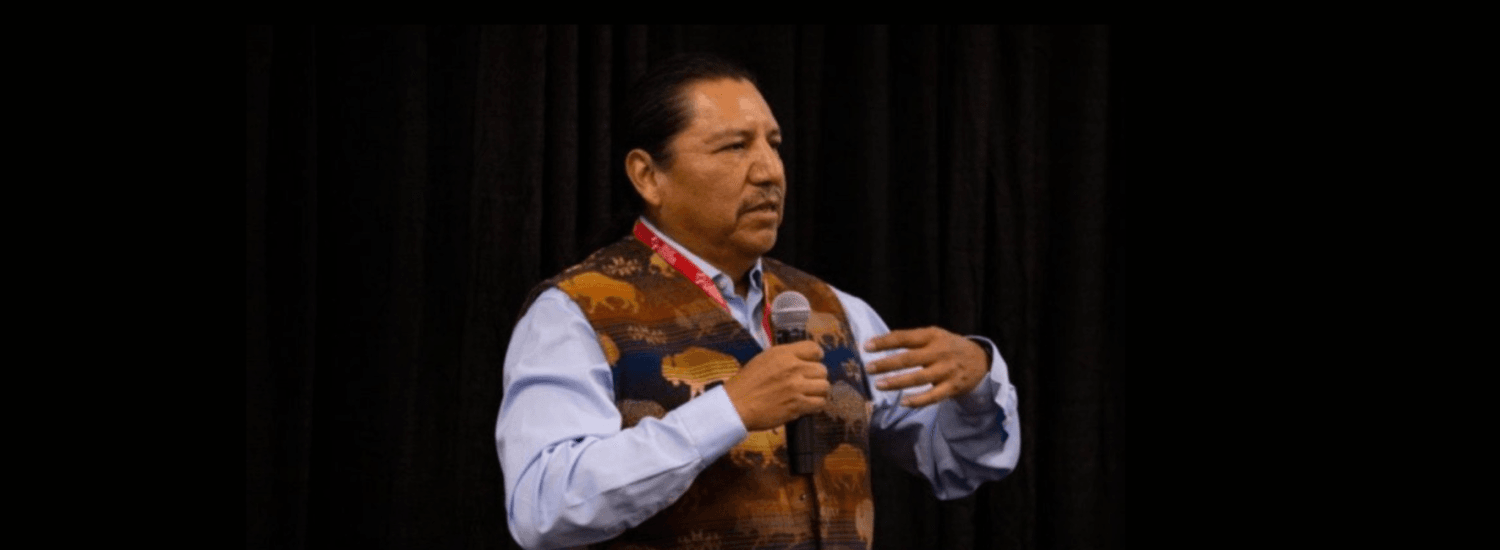CIRES names James Rattling Leaf, Sr. as inaugural Tribal advisor
The position strengthens CIRES’ commitment to working with Indigenous people

James Rattling Leaf, Sr. joins CIRES this month as the institute’s first-ever Tribal advisor, following six years of working as a tribal engagement specialist on various CIRES teams. The new position will help CIRES scientists and researchers build relationships with Tribes through projects, proposal writing, workshops, outreach, and training.
“There's such a great interest now in working with Tribes and Tribal cultures around the world, especially in America,” Rattling Leaf said. “I feel the time is now for me to continue to grow and expand and build my skills with other people and other scientists.”
CIRES director Waleed Abdalati helped create the new position, which is part-time, allowing Rattling Leaf to continue working with two CIRES-based groups: North Central Climate Adaptation Science Center (NC CASC) and Environmental Data Science Innovation & Inclusion Lab (ESIIL). Abdalati sees the incorporation of Indigenous perspectives as necessary in environmental research, and he sees Rattling Leaf as the perfect person to build bridges between science and Tribes.
“James is very well respected in the scientific community, the policy community, and tribal communities,” said Abdalati. “As an environmental research institute, it’s important that we dedicate time and energy and resources toward working with Indigenous people. Doing so is beneficial for all involved.”
Rattling Leaf brings decades of unique experience to the position. He currently serves as the cultural advisor for the NIDIS Drought Engagement Strategy, chairs the Ecological Society of America Traditional Ecological Knowledge Section, and is working with the Department of the Interior and the White House on how governments and scientists can engage with Indigenous people. In the past, he served as the director of the Geo-Spatial Applications Center at Sinte Gleska University.
Six years ago, Rattling Leaf worked as a consultant. He loved his job, but when Jennifer Balch, CIRES fellow and ESIIL director, recruited him for a position with NC CASC as a tribal engagement specialist – he was interested.
Before accepting the position, he invited Balch to visit his home in Rapid City, South Dakota, near the Pine Ridge Indian Reservation. The goal of the trip was to provide Balch with a deeper understanding of Indigenous people today. Soon enough, she was on her way.
“And I thought that was a really important part of our relationship-building,” said Rattling Leaf. “After that visit, I just felt like ‘this is somebody that I want to work with.’”
Rattling Leaf will build relationships with other CIRES scientists as he creates the Tribal advisor position from scratch. His first plan of action is to connect with scientists across the institute to understand their current methods for working with Indigenous people and explore opportunities for further engagement.
Then, he’ll focus on building out CIRES-specific strategies and policies. Rattling Leaf wants to create a tribal engagement strategy followed by policies that outline how the institute includes Traditional Ecological Knowledge (TEK) and addresses data sovereignty.
“To work with TEK means working with Tribal people,” Rattling Leaf said. “I think we have a real opportunity here at CIRES to have a policy toward TEK, to have a policy of how we work with Tribal nations, and respecting their Tribal sovereignty and their Tribal self-determination, and all aspects of what it means to do that work.”
At the start of the 2023 academic year, Rattling Leaf is busy. He’s continuing his work with NC CASC and ESIIL, while outlining the first steps of his new position.
“Let's be a leader in working with Indigenous people and Indigenous knowledge around environmental science,” Rattling Leaf said. “Let's have scientists, both early career and established, have access to Tribal networks and Tribal people to create an understanding in working with their cultures, our people, and lands.”